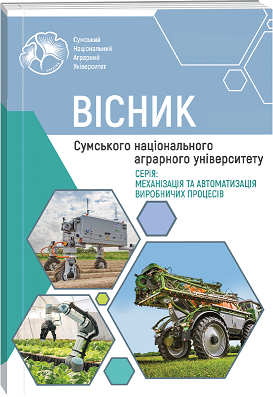ENGINEERING PEDAGOGY IN THE TRAINING OF ENGINEERS AND SCIENTIFIC AND TEACHING STAFF OF INSTITUTIONS OF HIGHER EDUCATION
Abstract
High-quality engineering education is one of the determining factors in the technological development of modern society. Continuous development of engineering activity – its modernization, improvement, expansion into other spheres of activity –requires adjustment, updating of goals, means and methodology of educational activity in general and engineering pedagogy in particular. In the professional community, the role and place of engineering pedagogy in engineering activity is currently being actively discussed, its significance for the development of modern engineering education is highlighted. Engineering pedagogy is aimed at ensuring that graduates of higher education institutions are effective in their chosen engineering activity, competitive, and ready to take an active part in its innovative development. With all the exceptional importance of the fundamentalization of engineering education, the development of future engineers’ system thinking, adaptability and the necessary set of competencies, today the focus of engineering pedagogy should be the issues of a new methodology of engineering activity. Today, engineering pedagogy appears before us as an independent branch of scientific knowledge, which, due to interaction with technical sciences and technology, pedagogically influences the development of the personality of a student of higher education, creates conditions for the formation of a multifaceted personality of an engineer. Along with this, the modern paradigm of higher education requires special training of teaching staff, which integrates technical, technological and humanistic knowledge in the field of pedagogy and psychology and meets the requirements of engineering and pedagogical activity. It is obvious that such training of scientific and pedagogical personnel, as well as engineering training, require further development of methodology and theory. The article examines such methodological components of engineering pedagogy as object and subject, goals and tasks, principles, methods and organizational forms of education, means and results of education in the context of the processes of scientific and technical knowledge and engineering activity. The subject of studying engineering pedagogy, its general didactic and special principles have been specified from today’s standpoint. The orientations of engineering pedagogy are considered: the processes of scientific and technical knowledge and engineering activity.
References
2. Byvalkevych, L. M. (2018). Shliakhy udoskonalennia inzhenerno-pedahohichnoi osvity v konteksti reformuvannia osvitnoi haluzi [The way to improve engineering and pedagogical education in the context of reforming the educational sector]. Visnyk: Pedahohichni nauky, 155, 11–14 (in Ukrainian).
3. Holovan, M. S. (2014). Profesiina kompetentnist vykladacha vyshchoho navchalnoho zakladu [Professional competence of a teacher of a higher education institution]. Problemy suchasnoi pedahohichnoi osvity. Seriia: Pedahohika i psykholohiia, Yalta: RVV KHU, 44 (3), 79–88 (in Ukrainian).
4. Kalna, T. H. (2012). Pedahohichna aksiolohiia v umovakh modernizatsii profesiinopedahohichnoi osvity [Pedagogical axiology in the conditions of modernization of vocational education]. Kyiv, Vyd-vo NPU im. M. P. Drahomanova, 128 (in Ukrainian).
5. Kirsanov, A. A., Kondratyev, V. V. (2010). Engineering pedagogy: definitions, problems, levels and functions. Diversity unifies – Diversity in Engineering Education, Trnava, Slovakia, 206–208.
6. Kuleshova, V. V, Malovana, V. V. (2009). Osoblyvosti pidhotovky maibutnikh inzheneriv-pedahohiv u vyshchomu navchalnomu zakladi [Peculiarities of training future engineer-pedagogues in a higher educational institution]. Problemy inzhenernopedahohichnoi osvity, 22/23, 149–156 (in Ukrainian).
7. Meletsinek, A. (2000). Engineering pedagogy. Practice of transfer of technical knowledge. Niu York, Springer Wien, 239.
8. Nychkalo, N. H. (2010). Profesiina pedahohika i pedahohika pratsi: problemy vzaiemozviazku v umovakh rynkovoi ekonomiky [Professional pedagogy and labor pedagogy: problems of interconnection in the market economy]. Pedahohika i psykholohiia, 2, 33–45 (in Ukrainian).
9. Pazynich, Yu., Bychko, O. (2009). Rol inzhenernoi pedahohiky v suchasnii osviti [The role of engineering pedagogy in modern education]. Visnyk NTUU “KPI”, 3 (27), ch. 2, 165–167 (in Ukrainian).
10. Reheilo, I. Yu. (2014). Pidhotovka naukovykh i naukovo-pedahohichnykh kadriv vyshchoi kvalifikatsii Ukrainy u XX – na pochatku XXI stolittia [Preparation of scientific and scientific-pedagogical staff of the highest qualification of Ukraine in the XX – beginning of the XXI century]. Kyiv, Osvita Ukrainy, 704 (in Ukrainian).
11. Romanovskyi, O. O. (2012). Fenomen pidpryiemnytstva v universytetakh svitu [The phenomenon of entrepreneurship in the universities of the world]. Vinnytsia, Nova knyha, 503 (in Ukrainian).
12. Shcherbak, O. I. (2010). Profesiino-pedahohichna osvita: teoriia i praktyka [Professional and pedagogical education: theory and practice]. Kyiv, Naukovyi svit, 279 (in Ukrainian).

 ISSN
ISSN  ISSN
ISSN 



